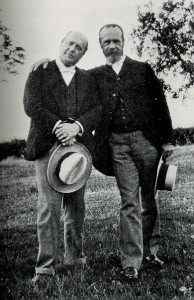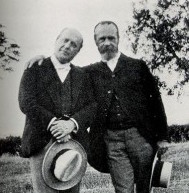THERE HAVE BEEN at least two major studies of the family that produced the novelist Henry James. One, by F. O. Matthiessen (the revered Harvard scholar), was published in 1941; the other, by R. W. B. Lewis (biographer of Edith Wharton), came out in 1991. But Paul Fisher says in the introduction to House of Wits just what you would expect of someone writing yet another version: that “a more complete and modern portrait of this family has not been possible until recently,” because before “the last decade or two, few people talked or wrote about the most intimate issues in the Jameses’ lives.” That must be why House of Wits might as well be called “House of Homosexuality, Nervous Breakdowns, Back Pain, Alcoholism, Insecurity, Social Climbing, Sibling Rivalry, and Constipation.” This, in short, is a book about the James family as neurotics.

Hermione Lee (another biographer of Edith Wharton) wrote in her New York Times review of House of Wits that Fisher seems to really have nothing new except an emphasis on Henry James Senior’s drinking problem and the claim that, even though the paterfamilias got sober after discovering the solution to his restless search for meaning (the Swedish philosopher Swedenborg), the James brood were still the children of an alcoholic. But that’s not all: Henry Senior also lost half his leg after putting out a fire as an adolescent in Albany, New York, where his father, an Irish immigrant, had made himself the richest man in town (though his grandson the novelist would boast that not for two generations had his family been guilty of trade), and he cut Henry Senior out of his will because his impetuous son had squandered his youth drinking and knocking around from place to place.







